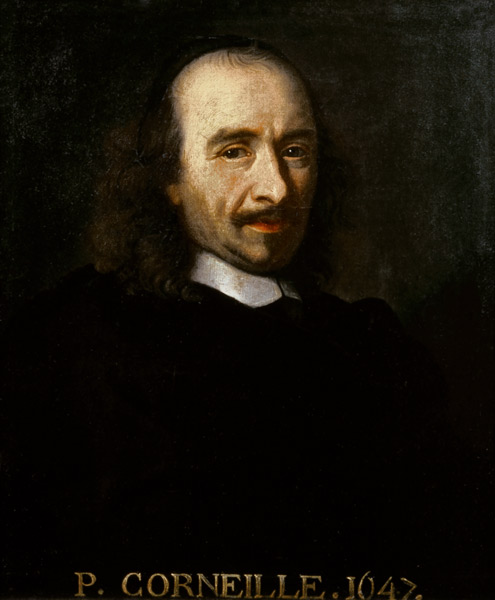Difference between revisions of "Pierre Corneille"
From sltarchive
Mark Ireson (Talk | contribs) (→External Links) |
Mark Ireson (Talk | contribs) (→Introduction) |
||
| Line 1: | Line 1: | ||
[[Image:PierreCorneille.jpg|thumb|500px|Portrait by Charles Le Brun, 1647]] | [[Image:PierreCorneille.jpg|thumb|500px|Portrait by Charles Le Brun, 1647]] | ||
== Introduction == | == Introduction == | ||
| − | Pierre Corneille (6 June 1606 – 1 October 1684) was a French tragedian. He is generally considered one of the three great 17th-century French dramatists, along with [[Molière]] and [[Racine]]. | + | Pierre Corneille (6 June 1606 – 1 October 1684) was a French tragedian. He is generally considered one of the three great 17th-century French dramatists, along with [[Molière]] and [[Jean Racine|Racine]]. |
As a young man, he earned the valuable patronage of Cardinal Richelieu, who was trying to promote classical tragedy along formal lines, but later quarrelled with him, especially over his best-known play, ''Le Cid'', about a medieval Spanish warrior, which was denounced by the newly formed Académie Française for breaching the unities. He continued to write well-received tragedies for nearly forty years. ''Le Menteur'' (''The Liar'', 1644) was a rare departure into farce. | As a young man, he earned the valuable patronage of Cardinal Richelieu, who was trying to promote classical tragedy along formal lines, but later quarrelled with him, especially over his best-known play, ''Le Cid'', about a medieval Spanish warrior, which was denounced by the newly formed Académie Française for breaching the unities. He continued to write well-received tragedies for nearly forty years. ''Le Menteur'' (''The Liar'', 1644) was a rare departure into farce. | ||
Revision as of 12:03, 15 May 2024
Introduction
Pierre Corneille (6 June 1606 – 1 October 1684) was a French tragedian. He is generally considered one of the three great 17th-century French dramatists, along with Molière and Racine. As a young man, he earned the valuable patronage of Cardinal Richelieu, who was trying to promote classical tragedy along formal lines, but later quarrelled with him, especially over his best-known play, Le Cid, about a medieval Spanish warrior, which was denounced by the newly formed Académie Française for breaching the unities. He continued to write well-received tragedies for nearly forty years. Le Menteur (The Liar, 1644) was a rare departure into farce.
